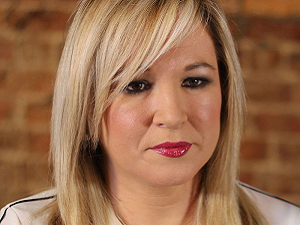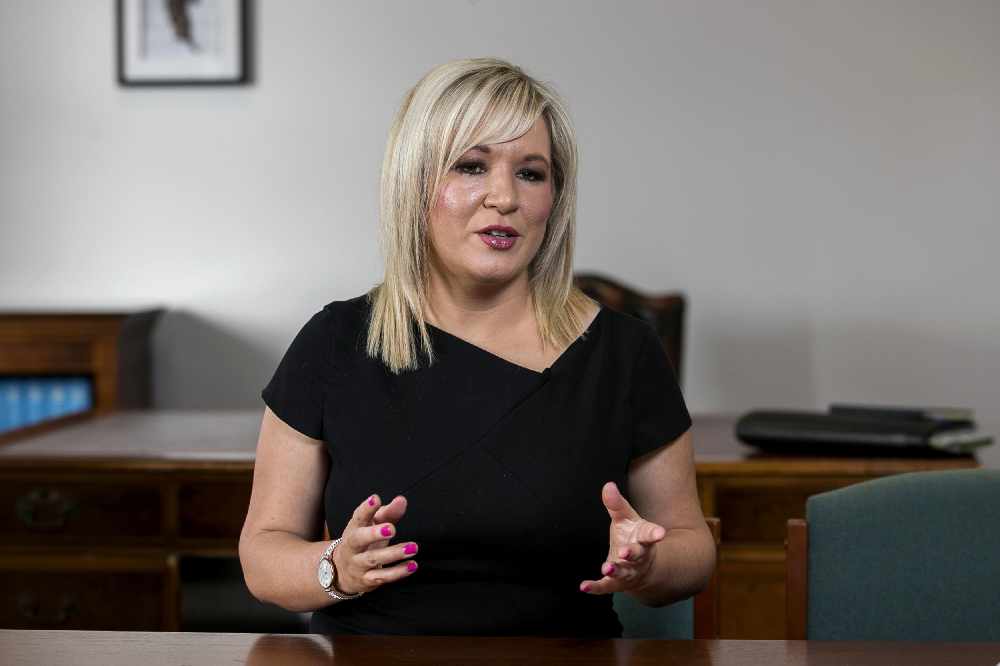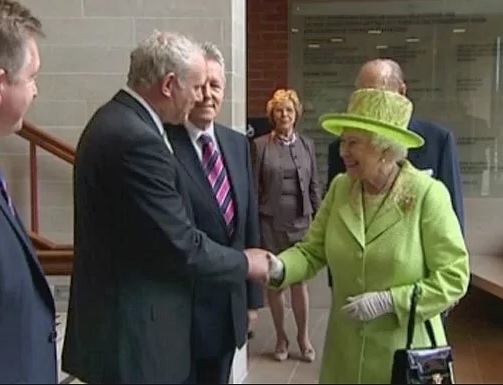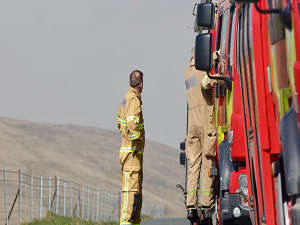
By David Young
Sinn Fein will not give ground on the terms of a powersharing deal the party insists it struck with the Democratic Unionists last year, Michelle O'Neill has said.
The party vice-president said she would not "negotiate down" from the proposals on the table when the last substantive talks process to restore devolved government imploded on Valentine's Day 2018.
In an interview to mark the second anniversary of the death of former Sinn Fein deputy first minister Martin McGuinness, Mrs O'Neill also accused the DUP of absenting itself from efforts to rebuild the institutions, claiming the party had instead focused all its "bandwidth" on Brexit.
Talks broke down last February in acrimony amid claim and counter claim on what had actually been agreed.
Sinn Fein said DUP leader Arlene Foster had agreed a draft deal to re-enter devolved government, a claim Mrs Foster emphatically denied.
Leaked copies of papers exchanged between the parties indicated discussions included a three-stranded legislative approach to deal with the logjam over Irish language protections.
"We had a deal back in February which was negotiated painstakingly over a period of time, the DUP walked away from that deal," Mrs O'Neill told the Press Association.

"Clearly we are not going to negotiate down from a position that you achieved last February.
"But the issues that caused the collapse remain, the issues in terms of the delivery of rights remain, we need to see those delivered in order for it to be successful.
"I want any new executive to be built on strong foundations.
"We can't have something that papers over the cracks, we have to have something that is real, that's meaningful, that's built on strong foundations and allows us to actually move forward and serve all of the people well on an equal basis, that actually deals with the fact that there is a lack of confidence now in these institutions and their ability to deliver."
The institutions crashed in January 2017 amid a row about an ill-fated green energy scheme.
The rift later widened to take in more long-standing wrangles over the Irish language, same sex marriage and the legacy of the Troubles.
Mr McGuinness, whose resignation triggered the collapse of powersharing, died two months later from a rare heart condition.
Prior to his death, Mrs O'Neill had been appointed his successor as the party's leader at Stormont.
"We obviously mourn his loss still to this day," she said.
"Martin was a colossus of a man, a man who brought great dignity to everything he did.
"I would like to think I have continued to carry on his legacy in all the work he has done."

Two years on from his death, Mrs O'Neill bemoaned the fact that the trust that she says marked relations between Mr McGuinness and former DUP leaders Ian Paisley and Peter Robinson does not exist between her and the current DUP leadership team.
"It's hard to have a personal relationship with someone who's not here," she said.
"And the DUP have been absent and Arlene Foster has been absent and all because of the Brexit relationship, the Brexit situation and the relationship with the Tories.
"So obviously the DUP have been very fixated about what's going on in Westminster and what's been described to me is they do not have the bandwidth in which to deal with that and also restoring the institutions here.
"So I need a partner with which to govern, I can't set up an executive by myself.
"I want to get to that stage. I want to give people hope.
"I want to say it's possible and I will work with whoever is leader of the DUP and any of the other parties indeed to try to find a way forward."
She added: "What the DUP demonstrated last year was bad faith, what they did was to walk away from something that they themselves negotiated. We at a senior level at our party, along with the DUP, did negotiate a way forward, and the DUP chose not to sell that deal.
"They chose at the last minute to walk out and actually collapse the process, not even telling the people they were negotiating with.
"Actually the first port of call was the media, that's not the way to conduct business, that's not the way to conduct a negotiation."

Mrs O'Neill said her party was prepared to countenance changes to the controversial petition of concern, a voting mechanism that can allow a block of MLAs to effectively veto a majority decision, but she would not allow it to be "binned".
"Yes, we are open to looking at the issue of the petition of concern however it needs to afford the protections that it was meant to do," she said.
"That was painstakingly brought about as a result of the agreement 21 years ago (Good Friday Agreement) and we are not prepared to throw it in the bin. It needs to be there. It needs to afford protections.
"But is there a way to reform it, of course we are open to looking at all of that.
"Remember it's not the petition of concern that's wrong, it's the use of it that's wrong."
In response to Mrs O'Neill's claims DUP MP Emma Little Pengelly said: "Whilst Martin McGuinness and Gerry Adams brought Sinn Fein from nothing to a party in government, the current Sinn Fein leadership has reduced the party to bystanders and spectators shouting from the sidelines.
"Michelle O'Neill could be a minister exercising power tomorrow but she has chosen to boycott Stormont and her MPs boycott the House of Commons at a time when every single vote matters."


 O’Neill writes to PM urging public inquiry into Sean Brown murder
O’Neill writes to PM urging public inquiry into Sean Brown murder
 Campaign to increase cancer awareness through pharmacies rolled out
Campaign to increase cancer awareness through pharmacies rolled out
 Concern over PSNI vehicles fleet, with 20% off road at worst point in 2023
Concern over PSNI vehicles fleet, with 20% off road at worst point in 2023
 Man released by police after Newry stabbing incident
Man released by police after Newry stabbing incident
 Firefighters tackle almost 150 wildfires across three days in Northern Ireland
Firefighters tackle almost 150 wildfires across three days in Northern Ireland